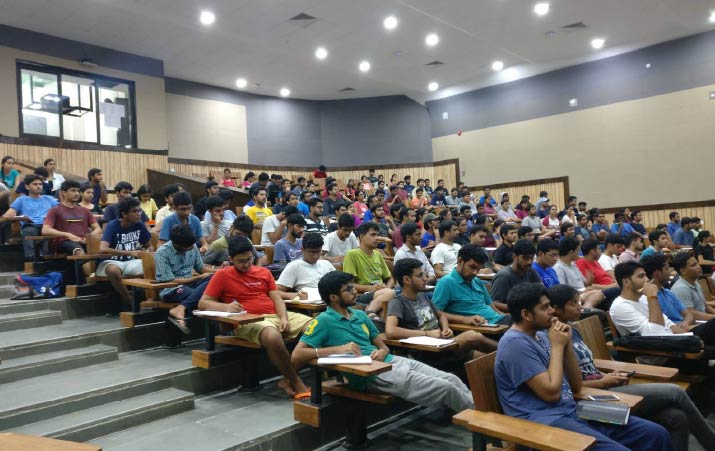The Education Ministry has advised IITs to have a higher representation of industry executives at IITs to address the curricular disconnect with industry requirements. Students will benefit as they will know the exact skills in demand in these sectors/companies. However, the move is also likely to coincide with IIT staff getting laid off
The chief technology officer of your favourite IT company or the CEO of a global consulting firm could be teaching at your Indian Institute of Technology (IIT) campus in the next two to three years.
As part of an initiative to increase industry-institute partnerships, the Education Ministry has advised IITs to have a higher representation of industry executives at IITs. This means that instead of faculty purely teaching theoretical subjects, there could be an equal mix of company managers visiting campuses.
Currently, guest faculty constitute about 7-10 percent of the faculty strength at IITs. The number of faculty members ranges from 800-1,000 at IITs. Going forward, the initial plan is to increase guest faculty to 20-25 percent while reducing staff strength at the 23 IITs.
Also, the industry faculty will be seen more frequently on campuses as against once or twice a year
“There is a consensus that IITs are a little disconnected from industry requirements. Having industry leaders come to campuses and interact with students would make a difference,” said an official.
The government also believes that mobility of faculty members and industry experts between technical institutes and industry will promote collaborations between industry and academia.
How it will work
Initially, industry executives could come in to IITs as guest faculty members once or twice a month. Simultaneously, faculty members would also get to visit the respective companies to understand real life problems at these firms and how theory is applied practically.
“Sometimes senior faculty members operate in silos. A lot of engineering concepts may have undergone a sea-change. Hence, it is essential that professors also visit companies to see the technological changes and skills in demand,” added another government official.
As part of this process, initially there will be a few areas identified. These could include areas like artificial intelligence, data mining and coding, among others.
Once the areas are identified, faculty members will be chosen and the companies will be identified by the respective IITs. Depending on the availability of slots, these professors/faculty members would be able to visit the companies and/or factories to understand the real demands of the profession.
At the same time, senior executives including top management and professionals working in the areas of technology and R&D at these companies will be identified. These professionals will then visit the IITs for collaboration on practical education and also assistance in research labs.
At a later stage, industry executives could also be called to gauge the economic potential of upcoming startups at the IITs.
However, there is some bad news as well. The government wants IITs to cut their overall staff strength. This means that while top industry executives will visit campuses, there could also be staff retrenchments of up to 3-4 percent at the IITs. The staff cuts will depend on individual research output and papers published in international research publications.
How will students benefit?
Students will benefit from industry executives visiting the IITs since they will know the exact skills in demand in these companies. This will nudge the students to upskill and meet these rising needs.
“Not all students, even those graduating from IITs, are employable. Getting skills relevant to the company/sector will help them gain an upper hand in the placement process,” said the second official quoted above.
Internships and site visits (over and above the yearly internships) will also be formally institutionalised by 2022-23, once the industry faculty numbers improve. This will increase the exposure of students to corporate work environments.
Courtesy – Money control
